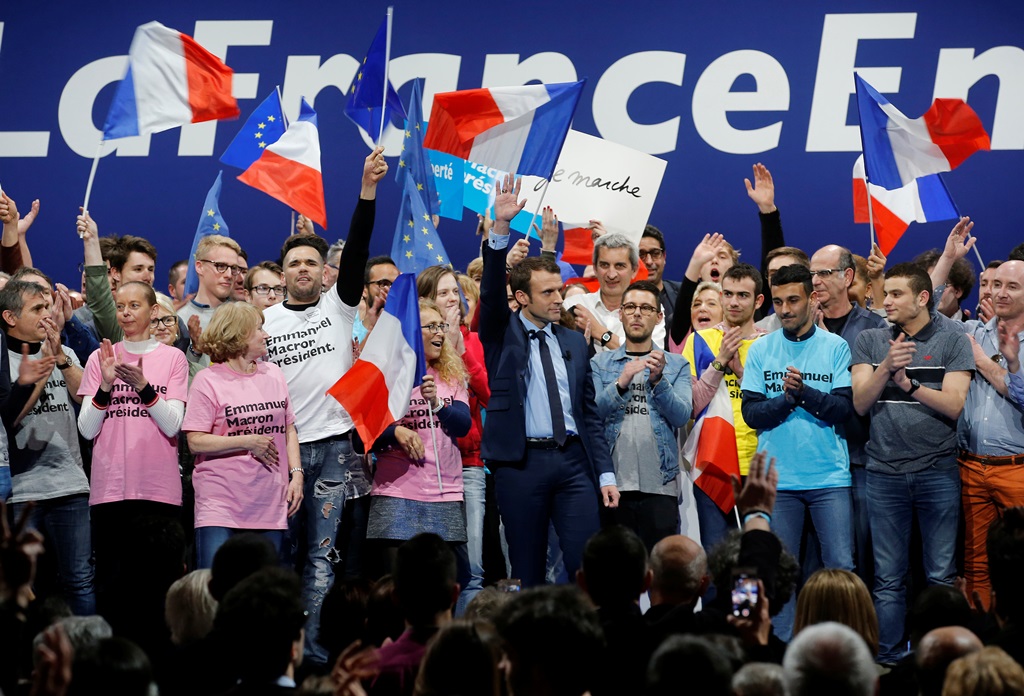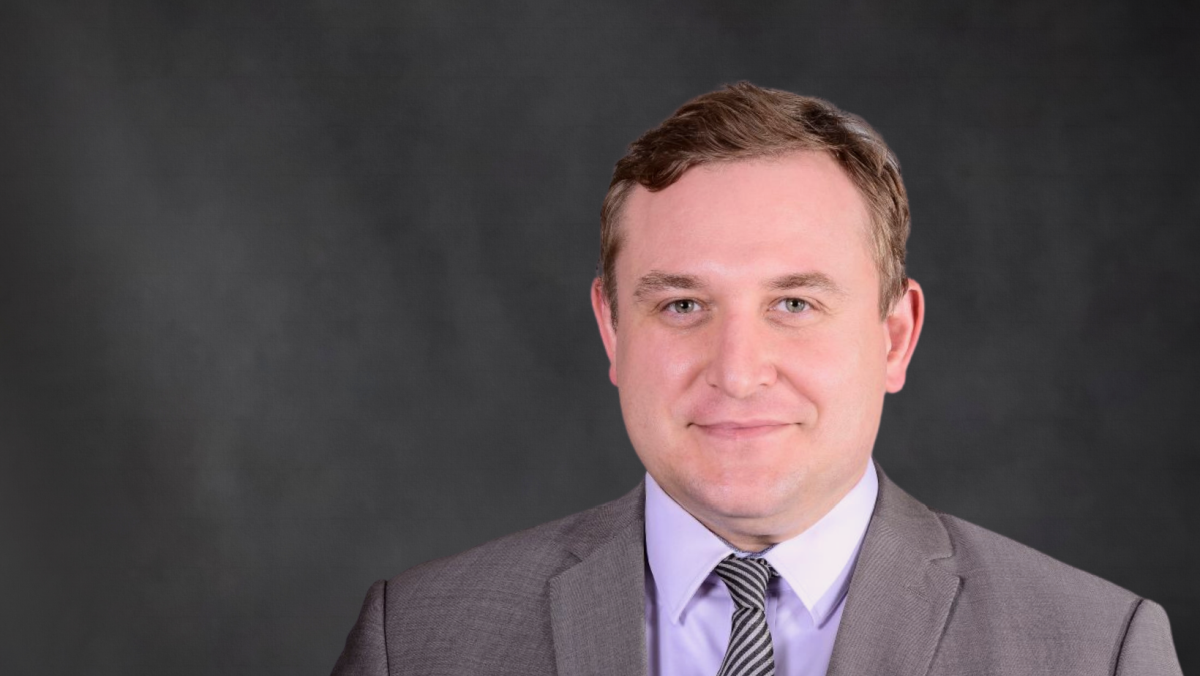Russia’s Attempts to Influence the Presidential Election in France

It is difficult to overestimate the importance of France for Russian foreign policy objectives. First, France has a significant influence on the maintenance of sanctions implemented by the EU in response to Russia’s annexation of Crimea and military aggression in eastern Ukraine. François Hollande has been vocal in his opposition to Russia’s violation of international law, pushing for stronger sanctions. Furthermore, he pulled France out of a contract to sell Mistral class assault ships to Russia. Secondly, France is a weak link in the chain of transatlantic ties, a chain that Russia wishes to loosen. French society has traditionally held strong anti-American attitudes, due largely to criticism of the omnipresence of American culture and business. Thirdly, the French are now (right after the Greeks) the biggest Eurosceptics, which suits Russia’s strategy to weaken the European Union. According to polls, only 38% of the French have a positive attitude towards the European project, and 53% demand a referendum on leaving the EU. Victory for a candidate who contests existing alliances and French involvement in European integration would help Russian policies of weakening EU unity. To this end, Russia has mobilised a range of tools to influence French voters and support pro-Russian politicians.
Russian Tools of Influence
Russia has deployed a broad formal and informal arsenal of influencers in order to manipulate the French electorate.
First, Moscow has developed political contacts with French right-wing parties. Since Marine Le Pen became leader of the Front National, the party’s relationship with Russia and its activists’ trips to Moscow have intensified visibly. Marion Maréchal-Le Pen, the party leader’s niece and deputy, spoke of the “common destiny of France and Russia” during a visit to Moscow in November 2016. Since 2013, Marine Le Pen has been a regular commentator in the Russian media. She has not so far met with Vladimir Putin, but has held discussions with his closest associates. Moreover, during the summer of 2015 a large group of activists from the FN and the Republicans met secretly with the chairman of the Russian State Duma Sergei Naryshkin, who is on the EU persona non-grata list. After this meeting, they issued strong criticism of the French government’s withdrawal from the Mistral contract.
Another tool of influence used by Russia is financial support for those political movements that are of interest to Moscow. An example is the €9.4 million loan that the FN received in 2014 from the First Czech-Russian Bank, associated with the Kremlin and based in Moscow. Le Pen could not obtain a loan from French or other European banks.
Russia’s official propaganda machine also plays an important role. In 2015, the Russian government launched a French language version of its global information service Sputnik. RT television (formerly Russia Today) was planned to launch in French, in February 2017, with an annual budget of $19 million. This Kremlin propaganda tube operates in 54 countries around the world and is available via television and internet. Content broadcast on the internet in French is commonly recycled by mainstream media.
The current strategy of building a soft network of influence is about “acquiring” French business, political or cultural leaders, and having them influence public opinion in line with Russian interests. The business relationship between Russian oligarch Konstantin Malofiejev and Philippe de Villiers, the owner of popular chain of historical parks Puy-du-Fou and a former minister in the government of Jacques Chirac, is a prime example. They have recently signed a contract to build two Russian theme parks, one in Moscow and one in Yalta. The Association of Franco-Russian Dialogue, which represents a leading Russian lobbying centre in Paris, is also worth noting in this respect. The association is co-chaired by Thierry Mariani, a Republican deputy and member of François Fillon’s campaign team, who has a reputation as the greatest promoter of Russia’s interests on the French political scene.
Finally, it is very likely that Russia uses cyberattacks as a tool for influencing the French electorate. The National Cybersecurity Agency of France (ASSI) held a special meeting in October 2016, related to suspicions of Russian infiltration and manipulation of information during the presidential election. The Agency warned political parties, polling agencies and organisations charged with electronic voting of the need to ensure information security, although the FN did not attend the meeting. The French intelligence services have been particularly concerned about the hostile cyberactivity of APT 28 and 29, groups associated with the FSB and the GRU, which last year hacked into the U.S. Democratic Party National Committee, and in 2015 blocked the TV5 Monde television channel.
Preferred Candidates
The course of the French presidential campaigns were, until the beginning of the year, favourable from the Russian perspective. Key candidates who advocated the abolition of sanctions and weakening of transatlantic ties have gained considerable public support (Marine Le Pen is on 26%, François Fillon has 21%, and Jean-Luc Mélenchon has 12%). Le Pen will probably get into the second round of presidential election, and Fillon still has a chance to do so if he is not charged with creating sinecures for family members.
Victory for either of these candidates would be beneficial for Russia, although, the one Le Pen would be the preferred option. She is not only planning to withdraw France from NATO and the EU, but also speaks vocally in favour of a strong alliance between Paris, Moscow and Berlin (though preferably without German Chancellor Angela Merkel). In the European Parliament, the FN leader has constantly voted in line with Russian interests, including opposing sanctions. Fillon’s success would be less satisfactory but still interesting for Russia. During the primaries, in which he ran against Alain Juppé, he publicly defended rapprochement with Russia by advocating the abolition of sanctions and the increased involvement of Russia and the President Bashar al-Assad in managing the Syrian conflict. However, unlike Le Pen, Fillon aims to strengthen European integration.
Macron’s Candidacy
Since the dawn of 2017, however, the campaign tide in France has begun to shift. As a result of Fillon’s financial scandal and very low public support for left-wing candidates, Emmanuel Macron has risen in the polls to second place (23%), just behind Le Pen. According to research, he could beat the FN leader in the second round, by 61% to 39%. Macron is a social-liberal candidate who emphasises his desire for a strong Europe, including vis-à-vis Russia.
Until that point, the Russian network of influencers had been working with a long-term perspective and most of all discreetly. High public support for the pro-Russian candidates meant there was no reason to interfere in the French election. Moreover, the pro-Russian attitudes of the French elites do not require Russian activity to any great extent. Nevertheless, Macron could thwart Russian plans. That is why a disinformation and defamation campaign has been launched via Sputnik and RT, spreading rumours about the personal life of the En Marche! leader. In addition, his party has been recently the target of cyberattacks. At the same time, Julian Assange, editor-in-chief of WikiLeaks has recently announced in Izvestia, that American presidential candidate Hillary Clinton’s emails contain "interesting information" on Macron.
Richard Ferrand, En Marche! secretary general, was quoted in Le Monde as saying that Russia has been engaged in a campaign aimed at destabilising support for Macron. Ferrand said that, during the last month, the party had been the target of massive hacker attacks. More than half of the originators of the 4000 cyberattacks had IP addresses “on Russian territory.” As a result, Ferrand addressed an urgent appeal to the highest state authorities to “guarantee that there will be no interference of a foreign country in our democratic life.”
Conclusions
Macron’s unexpected advancement has forced Russia to use more open and decisive, sometimes illegal, means to influence the French electorate. However, increasingly stronger disinformation activity, the alleged cyberattacks directed against the former minister of the economy, and propaganda by Kremlin-controlled media may yet prove ineffective. First, time is short. There are only nine weeks left to the election, so it will not be easy to undermine Macron in the polls. Second, public opinion is resistant to Russia’s increasingly expansionist policy. According to a 2015 survey by the Pew Research Center, 85% of the French population (that is, not the elite of French political society) distrust Putin, and this suspicion has been growing constantly. Third, the topic of Russian interference in the election has been gaining public attention daily. Macron is the beneficiary of such situation, which helps him distract voters from his lack of coherent electoral programme. And, because only Macron has been the object of unprecedented aggressive Russian actions during the French election, it is probable that a vote for him will mean a vote for the defence of national sovereignty against too great a Russian influence.


